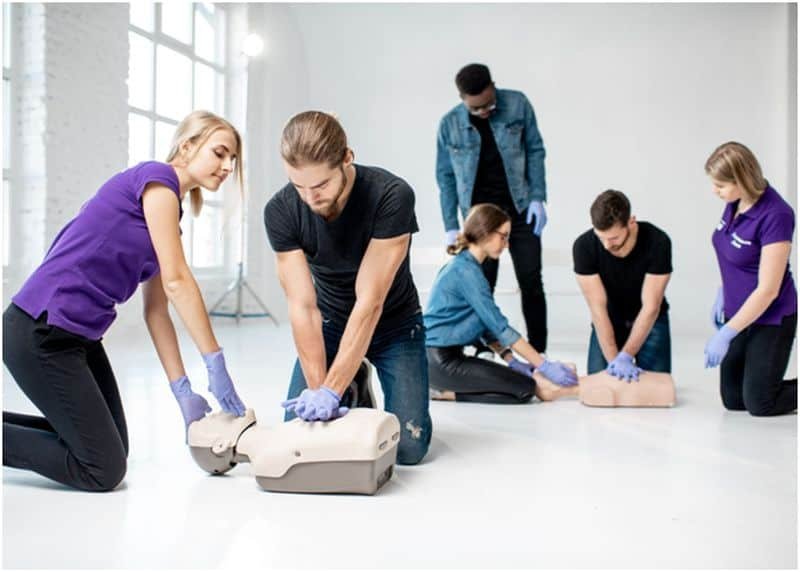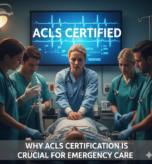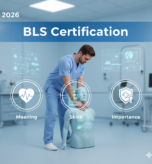In healthcare, every second counts—especially when saving a child’s life. That’s where the Pediatric Advanced Life Support (PALS) Certification comes in. Developed by the American Heart Association (AHA), PALS equips healthcare professionals with the knowledge and skills to manage critical pediatric emergencies effectively.
But the big question remains: Who should take the PALS certification? Whether you’re a nurse, doctor, paramedic, or a healthcare provider working in pediatric care, understanding the eligibility for PALS is crucial for advancing your career and delivering quality care.
In this blog, we’ll break down who needs PALS, the exact roles and requirements, and how you can get certified—even if you’re based in regions like Dubai where training is increasingly in demand.
What Is PALS Certification?
PALS Certification is a specialized training program designed to teach healthcare providers how to respond to life-threatening pediatric emergencies. It includes:
- High-quality CPR techniques for infants and children.
- Airway management skills to prevent respiratory failure.
- Recognition and treatment of shock, cardiac arrest, and arrhythmias.
- Team dynamics and communication during pediatric emergencies.
This training is evidence-based and internationally recognized, especially if you enroll in an AHA PALS Certification program.
Who Needs PALS?
The “who needs PALS” question is best answered by looking at the roles where child and infant emergencies are most likely encountered. Below are the professionals who should consider getting certified:
1. Pediatricians
- Pediatricians are often the first point of care for children in emergencies.
- PALS equips them with life-saving tools to stabilize patients before advanced hospital treatment.
2. Emergency Room (ER) Physicians & Nurses
- Pediatric patients admitted to the ER may present with respiratory distress, cardiac issues, or shock.
- ER staff must know PALS protocols for quick, effective intervention.
3. Paramedics & First Responders
- Ambulance staff and paramedics frequently encounter pediatric emergencies outside hospitals.
- With PALS, they can initiate critical interventions before hospital arrival.
4. Critical Care & ICU Nurses
- Pediatric ICU and neonatal ICU nurses manage high-risk cases daily.
Eligibility for PALS ensures they have the right skillset to handle complex emergencies.
5. Anesthesiologists
- During pediatric surgeries, anesthesiologists may face airway or cardiac complications.
- PALS training helps them act swiftly and accurately in crisis situations.
6. Respiratory Therapists
Since respiratory failure is one of the most common pediatric emergencies, therapists benefit from structured PALS knowledge.

7. Medical Students & Residents
- Many hospitals require PALS certification for residents starting pediatrics, emergency medicine, or anesthesiology rotations.
- Gaining it early provides a career advantage.
Eligibility for PALS
Not everyone needs PALS, but those who work with children in healthcare settings should meet the eligibility for PALS requirements.
Here’s what you need to know:
- Basic Life Support (BLS) Certification is usually a prerequisite.
- You should have medical knowledge in anatomy, physiology, and basic patient care.
- Ideal candidates include doctors, nurses, paramedics, and medical trainees.
- Non-clinical staff (like hospital administrators) are not required to take PALS.
If you’re unsure about your eligibility, many training providers, including Prime Wellness Training Institute, can guide you based on your professional role.
Benefits of Getting PALS Certified
Now that we know who needs PALS, let’s explore why it’s worth it:
- Improved Patient Outcomes – PALS equips professionals to reduce pediatric mortality in emergencies.
- Career Advancement – Hospitals and clinics often prioritize candidates with AHA PALS Certification.
- Confidence in Emergencies – Being trained means you won’t hesitate in critical pediatric scenarios.
- Compliance with Regulations – Many healthcare organizations require PALS certification for compliance and quality assurance.
- Global Recognition – AHA certification is valid internationally, including in places like Dubai, making it valuable for healthcare professionals aiming to work abroad.
PALS vs. BLS: What’s the Difference?
Many professionals confuse PALS (Pediatric Advanced Life Support) with BLS (Basic Life Support). Here’s a simple breakdown:
- BLS: Focuses on basic CPR and AED use for adults, children, and infants.
- PALS: Goes deeper—covering advanced airway management, ECG interpretation, and pediatric pharmacology.
In short: BLS is the foundation; PALS is the specialization.
How to Get PALS Certified
The process of obtaining your PALS certification is straightforward if you follow the right steps:
- Check Eligibility for PALS
- Ensure you have a BLS certification and a medical background.
- Ensure you have a BLS certification and a medical background.
- Choose an Accredited Training Provider
- Always opt for an AHA-accredited institute for global recognition.
- For example, you can explore the PALS Course in Dubai at Prime Wellness Training Institute.
- Always opt for an AHA-accredited institute for global recognition.
- Attend the Training Sessions
- Training includes lectures, skill practice, and scenario-based learning.
- Training includes lectures, skill practice, and scenario-based learning.
- Pass the Written & Practical Exam
- You’ll need to demonstrate both knowledge and hands-on skills.
- You’ll need to demonstrate both knowledge and hands-on skills.
- Receive Your AHA PALS Certification
Valid for two years, after which renewal is required.
Common FAQs About PALS Certification
1. How long does PALS certification last?
- Valid for two years. Renewal is required to keep skills updated.
2. Is PALS mandatory for all nurses?
- Not all, but ER, ICU, pediatric, and critical care nurses usually need it.
3. Can medical students take PALS?
- Yes, many students pursue it to enhance their resumes and improve residency placement chances.
4. Where can I get certified in Dubai?
- Prime Wellness Training Institute is a trusted provider for AHA PALS Certification in Dubai.
Final Thoughts
So, who needs PALS certification? The answer is clear: any healthcare professional involved in pediatric or emergency care should consider it essential. Meeting the eligibility for PALS not only boosts your confidence but also ensures you’re ready to save young lives in critical moments.
Whether you’re a pediatrician, nurse, paramedic, or medical student, investing in this training is a career-defining step. And if you’re in the UAE, enrolling in a PALS Course in Dubai at Prime Wellness Training Institute gives you access to internationally recognized AHA PALS Certification that can open doors worldwide.



